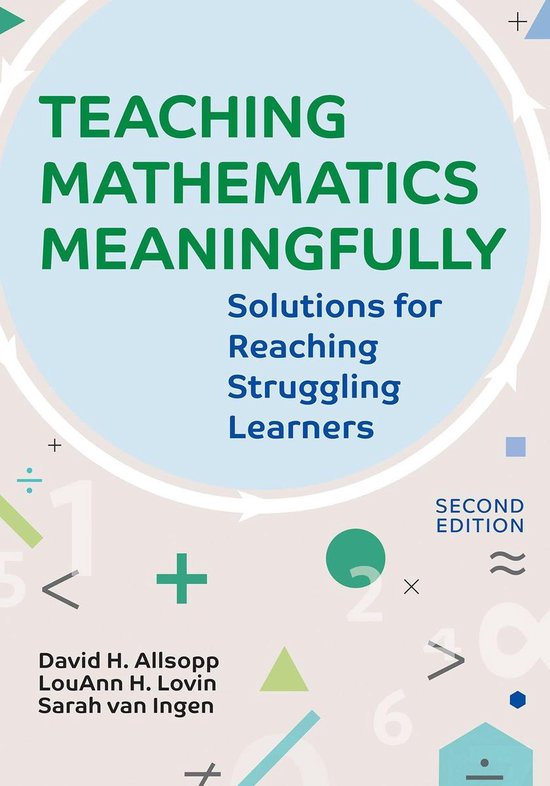Teaching mathematics meaningfully 2e

Direct beschikbaar
Unlock math concepts for struggling learners with the expanded new edition of this bestselling text, ideal for both preservice and in-service educators. Filled with invaluable tips, tools, and research-based strategies for Grades K-12, this comprehensive resource fully prepares teachers to demystify math for a wide range of learners, including students with learning disabilities, ADHD, and mild cognitive disabilities. Thoroughly updated and aligned with current state standards, this second edition includes the latest research, an enhanced instructional framework, expanded coverage of hot topics like RTI and assessment, and more. And with the practical materials-from activities to printable planning forms-teachers will have concrete ways to help students make sense of math, improve their proficiency, and generalize their knowledge in multiple contexts.
DISCOVER HOW TO
Uncover the barriers to students’ math success and effectively break them down Teach the big ideas of math and link them to Common Core State Standards Plan and implement student-centered instruction that responds to each learner’s individual needs Apply teaching practices for struggling learners within a multi-tiered system of supports (MTSS) Align instructional approaches with NCTM Teaching Practices Select assessment practices appropriate for struggling studentsPRACTICAL MATERIALS: You’ll get more than a dozen Take Action activities, reproducible planning forms (available in the book and online), and an in-depth case study that walks you through the Teaching Mathematics Meaningfully process.
WHAT’S NEW
An updated framework that makes the Teaching Mathematics Meaningfully process clearer and easier A clear and convenient summary of each step in the process A framework that is now aligned with Common Core State Standards Incorporation of the most current research and recommended practices Special focus on response to intervention/multi-tiered systems of supports Take Action Activities for practical application of the concepts and framework More information on learning trajectories in mathematics- 1 Bekijk alle specificaties
Taal: en
Bindwijze: E-book
Oorspronkelijke releasedatum: 15 februari 2018
Ebook Formaat: Adobe ePub
Hoofdauteur: David Allsopp, M.Ed., Ph.D.
Tweede Auteur: Louann H. Lovin, Ms, Ph.D.
Co Auteur: Dr. Sarah van Ingen, Ph.D.
Hoofduitgeverij: Brookes Publishing
Lees dit ebook op: Desktop (Mac en Windows)
Lees dit ebook op: Kobo e-reader
Lees dit ebook op: Android (smartphone en tablet)
Lees dit ebook op: iOS (smartphone en tablet)
Lees dit ebook op: Windows (smartphone en tablet)
Editie: 2
Studieboek: Nee
EAN: 9781598575590